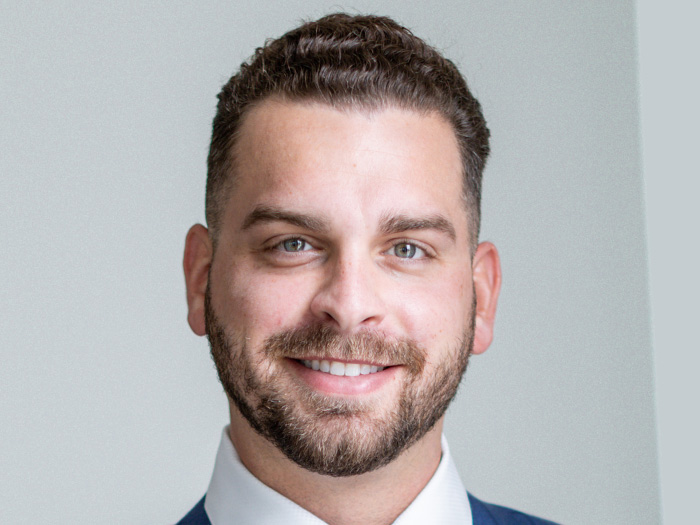The Law
Legal Spotlight

Court: A Mudslide Is Not an Explosion
On Sept. 12, 2013, a “violent flow of water, mud and debris thundered down a hillside,” destroying a commercial building in Boulder, Colo.
Colorado Casualty Insurance Co. denied an insurance claim by the insured, citing an exclusion for mudslides or mudflows.
 An engineer hired by Paros Properties LLC, owner of the property, concluded that the impact caused the property to split in two. On Oct. 24, 2013, the insured asked the insurance company to reconsider its denial, stating that the “force of the mudslide caused [the owner’s] building, literally, to explode.”
An engineer hired by Paros Properties LLC, owner of the property, concluded that the impact caused the property to split in two. On Oct. 24, 2013, the insured asked the insurance company to reconsider its denial, stating that the “force of the mudslide caused [the owner’s] building, literally, to explode.”
Paros noted that damage caused by an explosion was compensable. The company filed suit in Colorado state court seeking the policy limit of $907,600 for the physical damages, debris removal and loss of income that exceeded $1.4 million.
The case was later removed to the U.S. District Court for the District of Colorado, which on Aug. 29, was “not persuaded” that the damage was caused by an explosion.
“We disagree that demolition by an external cascade of water, mud and debris is an explosion under the policy,” it ruled on Aug. 29.
“We would be reluctant, for example, to construe policy language to include figurative meanings. … Although a football player may ‘explode’ off the line of scrimmage, we would not construe the exception to the exclusion to include damage to a wall from someone (even someone who is 6-foot-6-inches tall and weighs 330 pounds) fleeing a flash flood.”
Scorecard: The insurance company does not have to pay more than $2.3 million for the claim.
Takeaway: The court rejected the argument that any external impact with “sufficient kinetic energy” that destroys a structure is an explosion.
Insurer Must Cover Social Engineering Loss
On July 8, 2015, the controller of principle solutions group received an email from one of his managing directors requesting a wire transfer related to a company acquisition.
The email instructed the controller to work with attorney “Mark Leach” to “ensure that the wire goes out today.” The managing director was out of the office that day.
Later that day, Leach emailed the controller and sent wiring instructions for a bank in China. Subsequently, the controller wired $1.72 million in accordance with the instructions.
The controller informed his managing director of the wire the following day, after which the company unsuccessfully tried to recover the funds. It filed a claim for the loss with Ironshore Indemnity Inc. under a commercial crime policy, which had a $5 million per occurrence limit with a $25,000 deductible.
The policy stated it would pay for a “loss resulting directly from a ‘fraudulent instruction’ directing a ‘financial institution’ to debit your ‘transfer account’ and transfer, pay or deliver ‘money or securities’ from that account.”
Ironshore denied the claim, stating that loss did not result “directly” from the initial email because of the subsequent information supplied by Leach, and that Principle’s employees subsequently set up and approved the wire transfer.
Following a lawsuit filed in the U.S. District Court for the Northern District of Georgia, Judge Richard Story ruled on Aug. 30 that Ironshore’s argument would render the policy “ ‘almost pointless’ and would result in illusory coverage.”
Scorecard: The insurance company must cover the $1.72 million loss.
Takeaway: Because the policy language was ambiguous, it must be read in the light most favorable to the insured.
Defense Required for Assault at 49ers’ Stadium
On Oct. 5, 2014, cousins Amish and Kiran Patel were assaulted while waiting in line in the men’s bathroom just before kickoff of a San Francisco 49ers game at Levi’s Stadium. Kiran Patel was left with “traumatic brain injury,” according to reports.
 The men filed suit against Elite Show Services Inc. (which provided security at the stadium), the 49ers, the stadium and its management company, the City of Santa Clara and the Santa Clara Stadium Authority, alleging negligence in security services and creating a dangerous condition due to the lack of adequate toilet facilities “where crowds and long lines foreseeably created frustration, anxiety and confrontation.”
The men filed suit against Elite Show Services Inc. (which provided security at the stadium), the 49ers, the stadium and its management company, the City of Santa Clara and the Santa Clara Stadium Authority, alleging negligence in security services and creating a dangerous condition due to the lack of adequate toilet facilities “where crowds and long lines foreseeably created frustration, anxiety and confrontation.”
First Mercury Insurance Co., which issued a primary commercial general liability policy to Elite, subsequently filed suit in U.S. District Court for the Northern District of California against Great Divide Insurance Co., which issued a primary commercial general liability policy to the 49ers.
First Mercury sought a declaratory judgment that Great Divide had a duty to defend in the underlying action, that it had a duty to share defense costs, to participate in settlement discussions and share in indemnification.
On Aug. 29, U.S. District Judge Lucy Koh dismissed the motion related to settlement discussions and indemnification, ruling those issues were not yet “ripe” and could be reintroduced when future events render them relevant.
As for the duty to defend, she ruled that some of the claims in the underlying action were potentially covered by Great Divide and that it had a duty to defend in that action. Koh also rejected a motion to postpone the litigation pending resolution of the state court action.
Scorecard: Great Divide must share costs to defend against a lawsuit filed against the 49ers and related entities.
Takeaway: The potential liability relating to “unreasonable risk of harm” due to inadequate toilet facilities triggered the insurer’s duty to defend.










